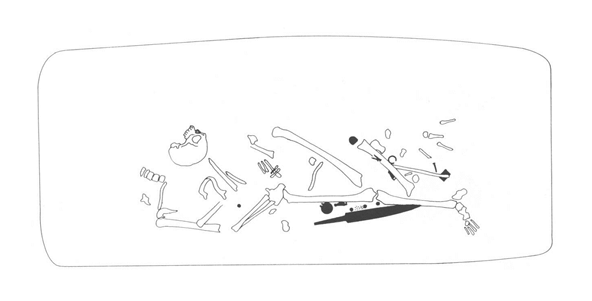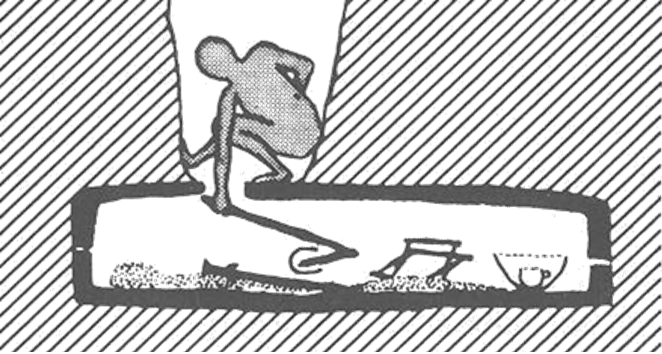Research project
In touch with the dead
A study of early medieval reopened graves
- Funding
-
 Individual NWO grant
Individual NWO grant
- PhD’s in the Humanities program
- Partners
Research question
What were the socio-political contexts of grave reopenings in the Merovingian period?
Graves from the Merovingian period (500-750 AD) were often reopened after burial. This project explores the various possible interpretations of this phenomenon, focusing on cemeteries from The Netherlands and surrounding regions.

Reopened graves
Graves from the Merovingian period (500-750) were often reopened after the funeral. The participants dug into the grave and changed its layout by moving, removing and possibly adding objects and bones. This happened while the cemeteries were still in use, sometimes within a few years after the burial.
What does it mean?
Since Merovingian graves contained many valuable grave goods, reopenings are often assumed to be cases of economically motivated grave robbery. However, there could have been many other motivations for opening a grave, such as ancestor cults and secondary burial rites.

Methodology
This research project aims to gather detailed data about reopened graves from old excavations in the Netherlands and surrounding regions. Attention is paid to all aspects of the funerary context, including skeletal layout, grave goods, grave construction and fill. These data will allow us to explore and verify various possible interpretations. We will also take into account contemporary historical sources.
Why Leiden University?
The Faculty of Archaeology in Leiden has is a lot of expertise on all aspects of mortuary practices, both cultural and osteological. Several members of staff and graduate students specialize in the early medieval period, making Leiden an ideal location for conducting this research.
